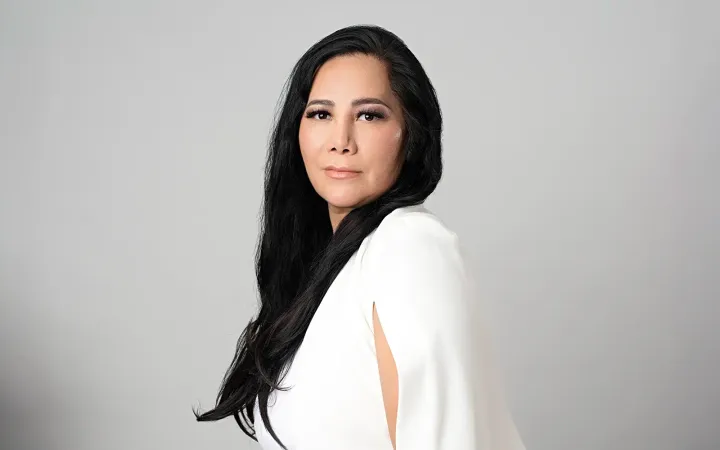Por Aidee Zamorano

Creía que mi sueño de hacer una maestría fuera de México sería más fácil en un país europeo, pero no. En la escuela de mi hijo me dijeron que es un delito que el mayor ( de 12 años) acompañe al pequeño (de 8) después de clases y eso pone en riesgo mi continuidad en la escuela. Abandoné un empleo de media jornada por la misma circunstancia.
En España no hay una ley que prohíba explícitamente que los niños caminen solos después de clases. Sin embargo, el Código Penal en su artículo 229, señala que las personas encargadas de la guarda de un menor pueden enfrentar penas de prisión si lo abandonan o no le proporcionan el cuidado necesario para garantizar su seguridad.
La ley no establece una edad mínima para que los menores puedan desplazarse solos por la calle, pero deja la responsabilidad en manos de los padres o tutores. Aunque no hay una norma que lo prohíba, se recomienda que los menores de 12 años no vayan solos al colegio, aunque, como todo en la crianza, la decisión depende de cada contexto familiar y del nivel de autonomía del menor. Esta falta de claridad legal coloca una vez más el peso sobre los hombros de las familias, que deben equilibrar las expectativas sociales, las realidades laborales y la seguridad de los menores sin un respaldo claro por parte del sistema. Sí, acá tampoco hay perspectiva de género en las leyes. ¡Sorpresa!
En el Día Internacional de la Eliminación de la Violencia contra la Mujer, quiero poner sobre la mesa un tipo de violencia que no siempre reconocemos: la violencia estructural que enfrentamos las personas cuidadoras en el ámbito laboral (y académico). No es visible a simple vista, pero se siente en la falta de oportunidades de crecimiento que nunca llegan, en el “tuve que poner una pausa en mi trabajo, tuve que abandonar la escuela” y en la carga desproporcionada de los cuidados, que parece diseñada para que siempre recaiga sobre nosotras. No nos engañemos, lo personal es político y que tú y yo debamos hacer renuncias es parte del sistema que no está diseñado con los cuidados al centro. Necesitamos un nuevo contrato social.
Las mamás no elegimos dejar de trabajar. Es el sistema el que nos obliga a salir.
Cada día, miles de mujeres nos enfrentamos a condiciones laborales que no consideran nuestras realidades. Los horarios inflexibles, la ausencia de permisos adecuados y la falta de políticas de corresponsabilidad nos dejan atrapadas en un círculo donde elegir entre trabajar o cuidar no es realmente una elección, sino una imposición.
En México, la participación laboral de las mujeres apenas supera el 45%, frente al 77% de los hombres. En España, aunque el 71% de las mujeres están activas en el mercado laboral, la tasa de empleo se desploma a medida que aumenta el número de hijos. Por ejemplo, solo el 52% de las madres con tres hijos o más menores de 12 años trabaja, en comparación con el 81% de los padres en la misma situación. Y si a esto sumamos la edad promedio en la que se tienen hijos –27.7 años en México y 31.5 en España–, resulta evidente que la maternidad está íntimamente ligada a la exclusión laboral.
Amar, cuidar y maternar no son lo mismo
Hablemos claro: amar y maternar son decisiones profundamente personales, mientras que cuidar es un trabajo. Es esfuerzo físico, emocional y mental que sostiene no sólo a nuestras familias, sino a la economía en su conjunto. Sin embargo, este trabajo no es remunerado, no es valorado y, peor aún, se da por sentado que debemos asumirlo en soledad. Llevo semanas viendo a una mujer caminando cerca de mi departamento cargando a una recién nacida con la mirada pérdida, pronto voy a hablarle.
El trabajo de cuidados tiene valor económico, en México, representa el 24% del Producto Interno Bruto (PIB), más del doble de lo que aporta la industria manufacturera – y puedo jurar que es mucho más pesado que cuando tenía trabajos 100% presenciales en la automotriz-. En España, las tareas de cuidados no remunerados equivale al 22% del PIB, lo que supera a industrias como el comercio y la construcción juntas. Estas cifras revelan que sin el trabajo de cuidados, las economías colapsarían, pero aun así, este esfuerzo sigue siendo invisible y despreciado.
Cuando los cuidados no se reconocen como una responsabilidad colectiva y un derecho humano, se perpetúa un sistema que nos condena a la pobreza. Así, las mamás terminamos cargando con jornadas dobles o triples, con salarios más bajos y sin acceso a un futuro digno. Y cuando no podemos sostener ese ritmo, simplemente nos expulsan y nos hacen creer que es nuestra culpa, que no podemos, que no hicimos suficiente yoga o no vibramos alto porque las oportunidades están ahí, pero no queremos tomarlas.
Inicia música de Daniela Romo del año en el que nací: 1983
Oye Claudia:
– ¿Dime por qué me dices siempre solamente mentiras?
El Proyecto de Presupuesto de Egresos de la Federación (PEF) 2025 de México asigna 44,870 millones de pesos a programas relacionados con los cuidados. Esta cifra representa aproximadamente el 0.7% del gasto programable total. Según el Centro de Investigación Económica y Presupuestaria (CIEP), esta asignación es un 27% menor en términos reales en comparación con lo destinado en 2016.
– ¿Dime por qué no dices nunca la verdad? Con mis sentimientos tú estás jugando, así no puedo seguiiiir
La corresponsabilidad no es una concesión, es un derecho
La solución no puede seguir recayendo solo en nosotras. Las empresas deben asumir un rol activo en la creación de espacios de trabajo más justos, donde la corresponsabilidad no sea una excepción, sino la norma. Lo hemos comprobado con el Ranking Mamá Godín: cuando se integran políticas que promueven el trabajo digno para madres – y para cualquier persona cuidadora incluidos los hombres-, la participación laboral de mamás puede incrementarse hasta en un 113%, como ha ocurrido en algunas empresas en México que siguen la metodología que desarrollé en 2020.
Pero no basta con el esfuerzo de unas pocas empresas pioneras. Los gobiernos tienen que garantizar sistemas de cuidados universales, accesibles y de calidad. No podemos seguir dependiendo de la "suerte" para encontrar un lugar donde se respete nuestra doble labor como trabajadoras y cuidadoras.
Este 25N, reflexionemos sobre la violencia que enfrentamos las mujeres más allá de los espacios privados. Porque la falta de opciones para cuidar, trabajar y vivir dignamente también es una forma de violencia. Cuidar es trabajar, y trabajar no debería significar renunciar a nuestros derechos ni a nuestro futuro.
Y como así no podemos seguir: Alma Paz (La de RH) y yo les invitamos a nuestro contingente de mamás y mujeres cuidadoras en Madrid para alzar la voz por quienes cuidan, trabajan y estudian. Nos reuniremos para visibilizar las desigualdades que enfrentamos y exigiremos que el trabajo de cuidados sea reconocido y protegido aquí y allá.
📍 Punto de encuentro: Oficina de Políticas Sociales y Familiares, Paseo de la Chopera 41, Madrid.⏰ Hora: 18:00 horas.
Trae algo morado y tu energía para marchar juntas por un futuro más justo. ¡Te esperamos!
Las opiniones expresadas son responsabilidad de sus autoras y son absolutamente independientes a la postura y línea editorial de Opinión 51.






Comments ()